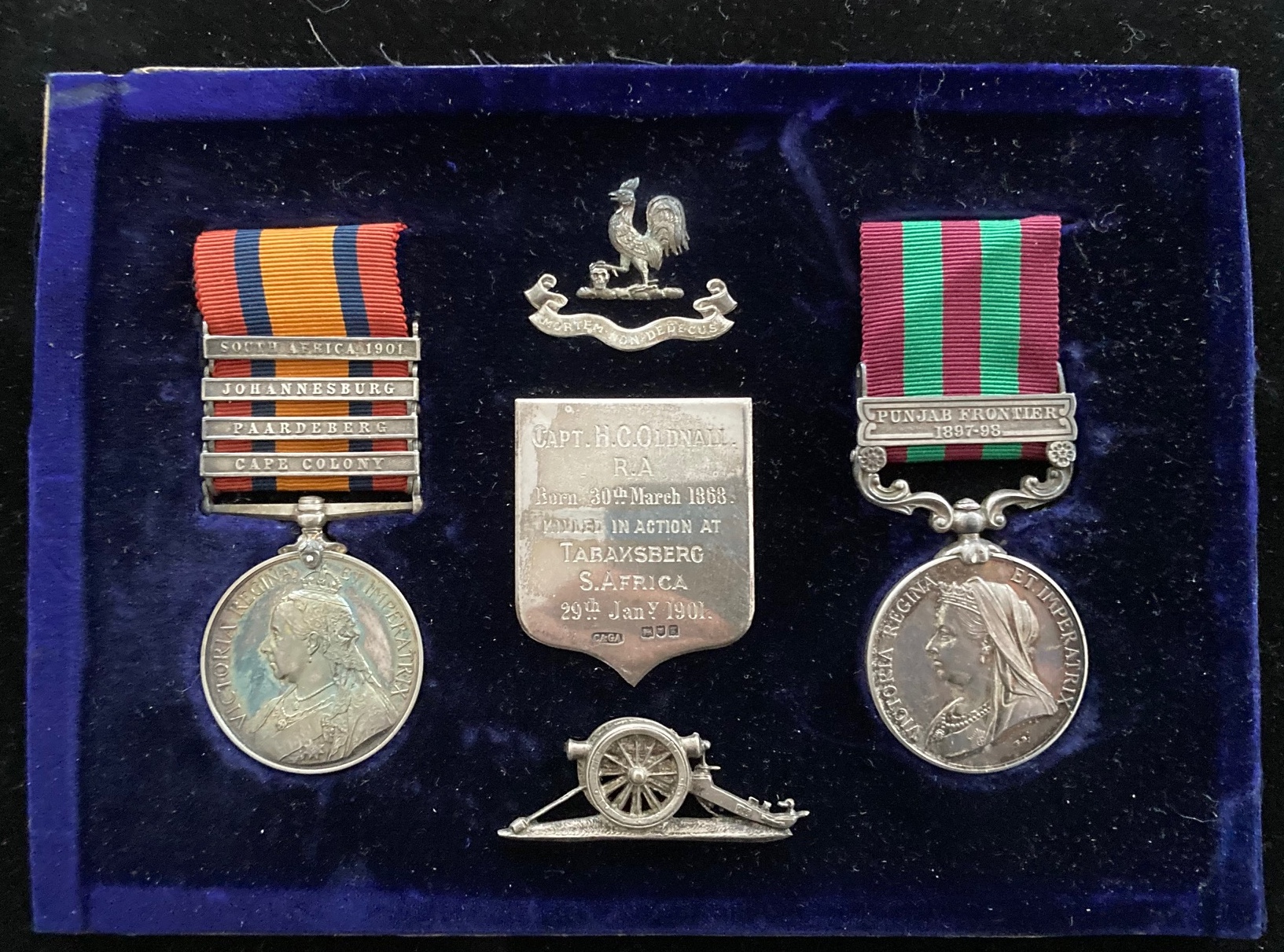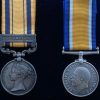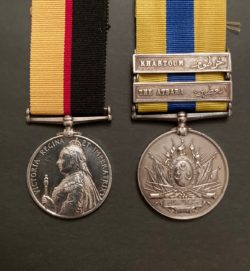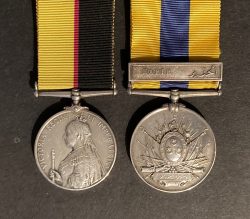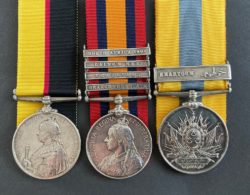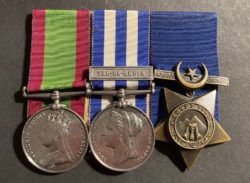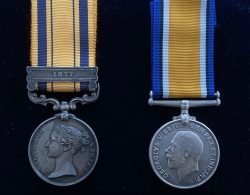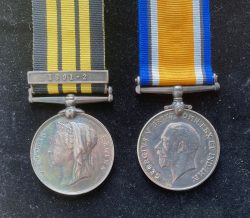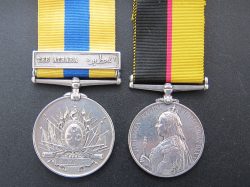Subtotal: £1,100.00
India General Service and Boer War pair Captain , Royal Artillery and Staff, killed in action and posthumously mentioned in despatches, Tabaksberg, 29 Jan. 1901. Whilst carrying a vital despatch to another part of the position during the action rode into a Boer unit and was surrounded. Called on to surrender he refused and drawing his pistol was shot and killed
£2,800.00
I.G.S. 1895 , Clasp, Punjab Frontier 1897-98 (Captn. 10th Fd. By R.A., Q.S.A. 4 clasps, C.C., Paard., Jo’burg, S.A.1901 (Captn. 62nd By. R.A.), top clasp loose on ribbon
Mounted on the liner of a case with an artillery badge, a silver plaque ‘Capt. H.C. Oldnall, Born 30th March1868. Killed in action Tabaksberg, S. Africa 29th Jany. 1901.’ and a further silver badge engraved ‘Mortem Non Dedecus’ (Death not dishonour)
Mentioned in Despatches (posthumously) , L.G. 7/5/1901
Oldnall, Henry Cairns Captain
He was killed in action at Tabaksberg, January 29th, 1901. He was born in March 1868, of Comberton Hll, Kidderminster, and entered the Royal Artillery, February 1886, being promoted Captain May 1896. He served in the operations on the North-West Frontier of India, 1897-98, with the Malakand Field Force, being present at the action at Landaka and the operations in South Bajaur and in the Mamund Country. Captain Oldnall was also with the Buner Field Force in the attack and capture of the Tanga Pass, and received the medal with clasp. He served in South Africa from December 1899, and was station staff officer at Rhenoster.
Biography From a letter written by the officer commanding the force when Cpt Oldnall was killed:
“Capt. Oldnall, who had behaved with the greatest gallantry throughout an afternoon of the serverest fighting imaginable, when my small force of 500 men was engaged by De Wet with between 4 and 6 times that number, was in the very foremost advanced place, when at dusk I ordered a general retirement. I met him then and asked him to go to another part of the position we had been holding and which I had just left to convey to the officer there, an order to retire simultaneously. He said to me “Oh, my horse is wounded!” I said “Take mine, it is down there,” pointing to it. With that he went off. Subsequently I saw he had not taken my horse, I fear owing to his desire not to deprive me of its use. I never saw him again. From one of the men who was taken prisoner and subsequently released, I gathered that in the dark Oldnall lost his way and rode into the Boer lines, where he was surrounded and called upon to surrender, which he refused to do. He drew his revolver and the Boers thereupon shot him. I think his reason for not surrendering was that besides his natural gallantry, he had on him some important official documents. That night and the following day, the battleground was searched most carefully without any trace of him being found. I concluded therefore that he had been taken prisoner. It appears after his death, the Boers buried him and then wore his uniform, which accounts for my receiving reports afterwards from farms when the enemy had passed, that an Artillery Officer in uniform was seen with them. I always hoped this was Oldnall as none other was missing that day…He was an excellent officer. He had done much for me, and had been for some months my constant companion and friend.”
Oldnall was posted missing at first and confirmation of his death did not come until March. He was born in March 1868, and entered the Royal Artillery, February 1886, being promoted Captain May 1896. He served in the operations on the North-West Frontier of India, 1897-98, with the Malakand Field Force, being present at the action at Landaka and the operations in South Bajaur and in the Mamund Country. Captain Oldnall was also with the Buner Field Force in the attack and capture of the Tanga Pass, and received the medal with clasp. He served in South Africa from December 1899, and was station staff officer at Rhenoster. Source: NVh November 1901 101. LP
Category Military, armed forces & conflict
Memorials St James’s Park north-east corner. Memorial. Royal Artillery, The Mall, London, England; Cathedral Green. Statue. County, Worcester, Hereford & Worcester, England
A lovely group, medals in as struck condition and fine details
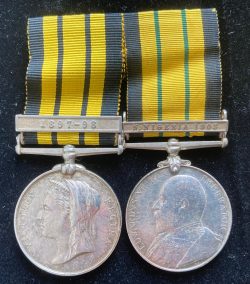 Pair: Surgeon ,East and West Africa clasp, 1897-98 (Surgn. Lagos. Hausa. Force.), Africa General Service clasp, N. Nigeria 1903 (Dr. W.A.M.S.)
Pair: Surgeon ,East and West Africa clasp, 1897-98 (Surgn. Lagos. Hausa. Force.), Africa General Service clasp, N. Nigeria 1903 (Dr. W.A.M.S.) 
